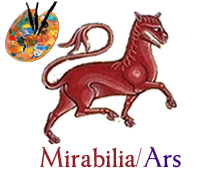Susana FIORETTI
Marginals, schismatics, heretics: Their religious expression in fourth and fifth century patristics
Marginales, Cismáticos, herejes. Su expresión religiosa en la patrística de los siglos IV y V
Published in
PDF download:
During the fourth century, once Constantine’s politics placed Christian worship on equal footing to Paganism, a fruitful and swift effort to create a corpus of doctrine and thought was carried out. Fourth-century Christians became increasingly vigilant with respect to their own Christian identity when they faced the rapid and sometimes incomplete conversion of the heathen, but fundamentally when facing internal divergences that were becoming more visible and problematic in this new political process. The century witnessed the emergence of numerous marginalized Christian movements that resisted the creation of a Catholic orthodoxy supported by the Empire. Hence, heresy was the hub of the problem, configured as a negative limit for orthodoxy. The “Constantinian Revolution” marked the beginning of the end of the old system, eclectic and tolerant of doctrinal matters, yielding to a religious centralization that would not be limited only to ritualism, but would also extend into the realm of personal behavior and belief. By transforming a persecuted faith into a stable Church, not only was it sought that it be present in society, but that it would control it. Hence, the absolute and exclusive conception of dogma constructed by the Church shows its inability to conceive as possible the coexistence of its preaching with other forms of truth. The center of the philosophical and theological universe was solidly occupied by the truth of the Church, who ended up becoming the arbiter of all discourse. The topic has come a long way and evolved to an intolerance that, undoubtedly, entailed a modification of Roman policies. Many of the works that we have analyzed are a registry of the Church’s struggle against its persecutors and against heretics, who were becoming the biggest threat to its continuity, as understood by many of its contemporaries.


















































































